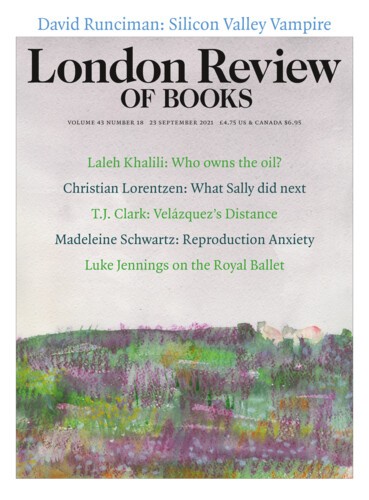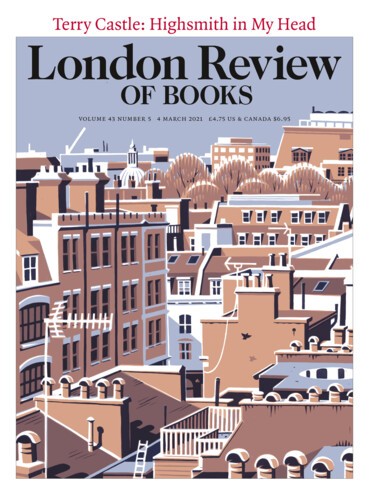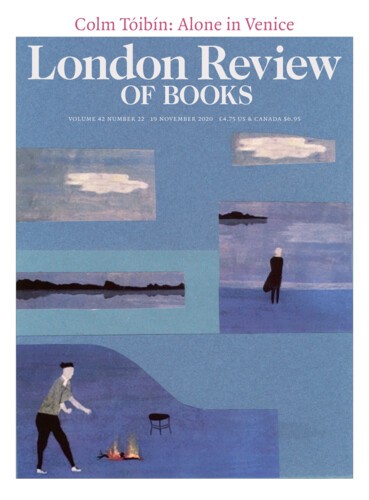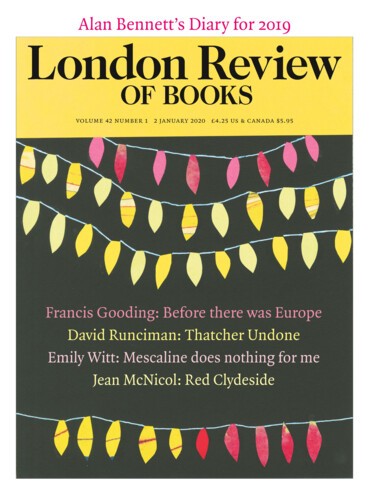Flocculent and Feculent
Susan Pedersen, 23 September 2021
Of the many hardships visited on New York in the first months of the pandemic, food shortages weren’t among them. Supply chains held. Cleaning products vanished from supermarket shelves but there was still plenty to eat. The system showed its tensile strength, its eerie ability to deliver food of all kinds even to a population pinned in place, unequally able to purchase it. When the...





